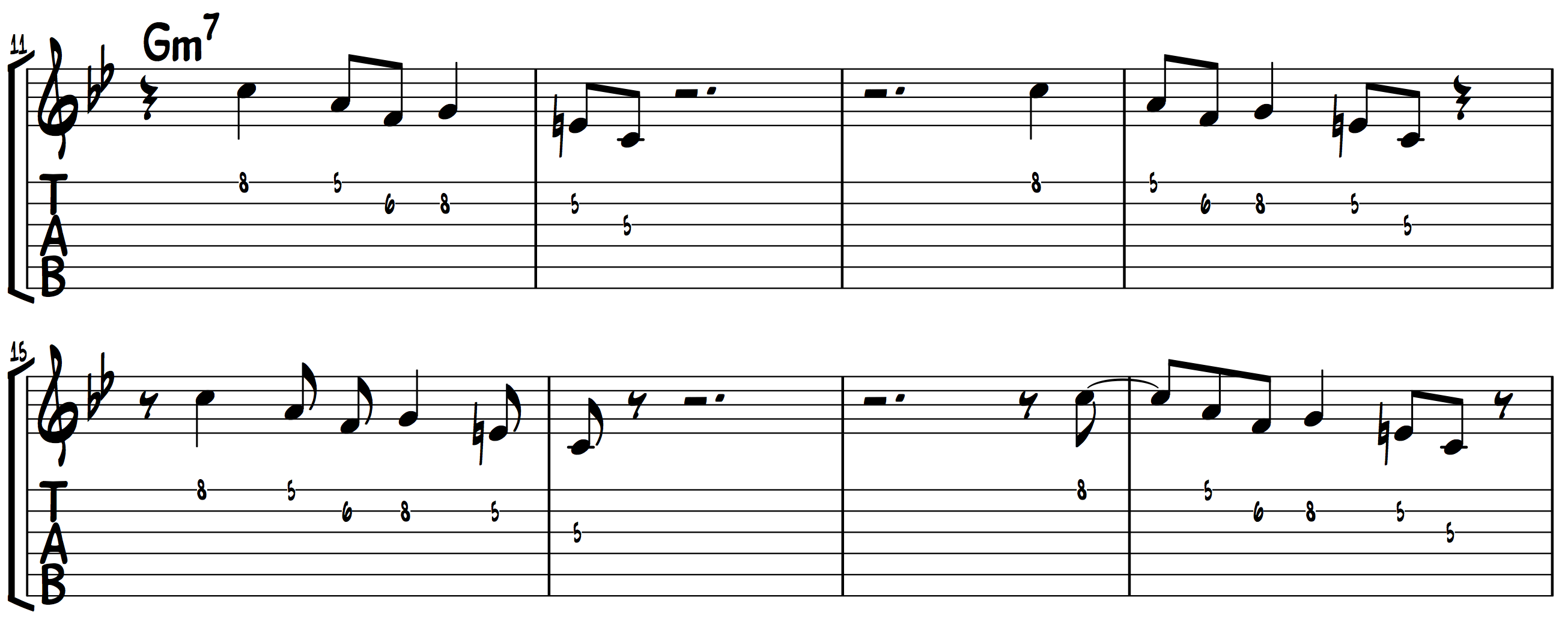Lick of the Week #3
05 Oct 2015In the first installment, I spoke pretty loftily about the importance of going beyond transcription to make licks an organic part of your playing...
Well, I realize that I should walk my own walk that I talk. So I won't just leave it up to you, but also share my process of working through these licks and internalizing them. I figure, the goal of these posts are to encourage me to work through new vocabulary, so might as well do the most important part too.
This week, let's take a look back at the Wes Montgomery licks from last week. I've been having fun playing with a riff from Bar 3, that also shows up in the last two beats of Bar 1.

If we look at a simple riff like this, we can see that it has a melodic structure and a rhythmic structure. One of the things that I love about this is how swings so hard while emphasizing the downbeats, and 1 and 3 no less. While I usually think of swing emphasizing upbeats (both in terms of 8th notes and quarter notes (beats 2 and 4)), but when Wes plays it still has that upbeat swing feel.
Some terminology: (4n = Quarter Note, 8n = Eighth Note, _(interval) "Go down interval", ^(interval) "Go up interval", R 2 3 4 5 6 7 8 "Intervals Root Half Whole 3rd ...")
Rhythm
4n 8n 8n- Starting on downbeats 1 or 3
Melody
R _3 _3^2and repeat
The first thing we can do is just to take the pattern and continue it (Rhythmic Extension).

If we start from different notes, it becomes more versatile (Melodic Shift).

Just as we can do a melodic shift, we can also start on different beats (Rhythmic Shift). If we start on an upbeat, it really changes the feel.

We can also change the scale that we're playing, and/or play over different chords (Harmonic Shift). Let's shift to an altered scale over the V in a ii-V-I.
